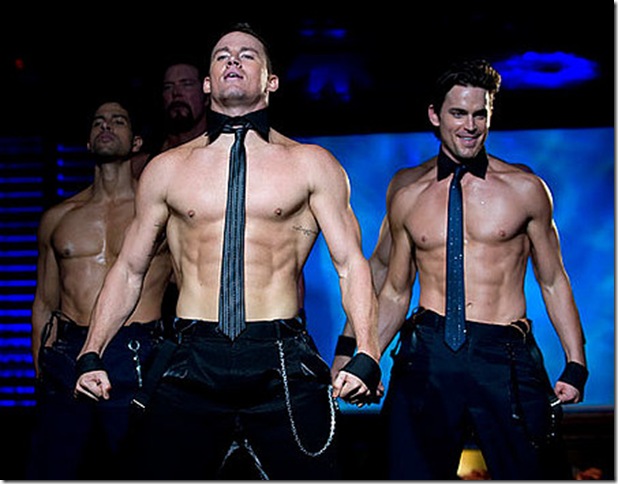I recently rewatched Gray’s Anatomy, Steven Soderbergh’s film adaptation of Spalding Gray’s extraordinary monologue about his experiences with an obscure ocular condition.
Released in a delicious Blu-ray transfer from Criterion, the film looks better than ever, with Soderbergh’s colorful aural and visual additions enhancing Gray’s already gripping narrative.
As I watched Gray’s silhouette contorting in front of a cobalt background, and the hazes of smoke swirling around the flickering firelight – to name just two instances of director’s phantasmagoric playfulness – it occurred to me that Soderbergh is like an action painter with a canvas of celluloid. If most directors employ colors to service the storytelling, Soderbergh creates his storytelling out of the colors (or lack thereof), inventing textures through his precise deployment of them.
Most recently, the autumnal hues of The Informant! created a sense of warm, ’50s-television nostalgia, and Contagion’s palette of frosty blues and blacks suggested an antibacterial coldness. Haywire’s colors shifted as manically and suddenly as the movements of its impossibly athletic protagonist.
The first color that dominates in his latest feature, Magic Mike, is an acrid yellow, as if the final print had been doused in urine. Welcome to Tampa!
This is where the film is set, and it’s based in part on the autobiography of its star, Channing Tatum, he of the immaculate physique and dubious cinematic c.v. Before he became a six-figure movie star, Tatum was a model and exotic dancer, working under the name Chan Crawford. In the movie, he’s Magic Mike, moonlighting as a stripper, which helps to support his entrepreneurial work as an automobile detailer, roofer and aspiring furniture designer. Needless to say, the movie offers a lot more evidence to that first profession than to any of the others.
Mike lives in an enviable house, enjoys myriad fringe benefits with a bisexual friend, and enjoys a life of perpetual under-the-counter bling. The film centers on his relationship with Adam (Alex Pettyfer), a directionless young performer who becomes his onstage protégé and best friend. Mike soon begins to crush on Adam’s straitlaced sister Brooke (Cody Horn), whose down-to-earth presence punctures the emotional emptiness in his life.
This could have been a vapid vanity project for Tatum, just as Haywire could have been a vapid vanity project for mixed martial artist Gina Carano. But neither of them are. Soderbergh asserts his authority over the material not only in the aforementioned colors – which silently undercut the tacky decadence of Mike’s lifestyle – but in its absence of emotional cues.
Reid Carolin’s screenplay is a boilerplate affair, full of predictable romantic reversals and a naïve young stripper’s inexorable decline into a world of crime, drugs and lurid sex. Been there, done that; in the hands of a less visionary director, Magic Mike could have been artless. But by isolating the music solely to the strip club’s pulsating soundtrack of hits, Soderbergh lets the film’s story progress with zero manipulation, fomenting an uneasy tension between comedy and drama.
This approach carries over to his editing – the movie’s full of sudden, disorienting transitions – and his framing. There’s a spectacular shot of Mike and Adam backstage, discussing their craft in-focus behind a utility rack in the right corner of the frame, while at the bottom left, in the blurred foreground, the penis of another dancer is being “extended” with a pump. We don’t know whether to laugh, be shocked, or ignore it; it’s just there. (The other dancers, by the way, are performed by a motley crew of entertainers, including True Blood werewolf Joe Manganiello, pro wrestler Kevin Nash, and jovial comedian Gabriel Iglesias, playing against type).
There may be too much footage of the strip show – led by the club’s owner, Matthew McConaughey, in a role he was born to play – but the women at the advance screening I attended didn’t seem to mind. And besides, Soderbergh understands that the appeal is in the performance art as much as the titillation, and he revels in the combination of theatrical camp and genuine dance artistry that goes into the show.
Even playing a character he knows all too well, Tatum is still a mediocre actor. He’s a blocky presence, and he doesn’t handle introspection well; in his quieter scenes, it looks like it’s hurting him to think. And ultimately, does a hardworking stripper’s self-actualization amount to a hill of beans in this world? No. But Magic Mike is infinitely better than it should have been.
MAGIC MIKE. Director: Steven Soderbergh; Cast: Channing Tatum, Matthew McConaughey, Alex Pettyfer, Olivia Munn, Cody Horn; Distributor: Warner Brothers; Rating: R; Opens: Friday at most commercial houses
